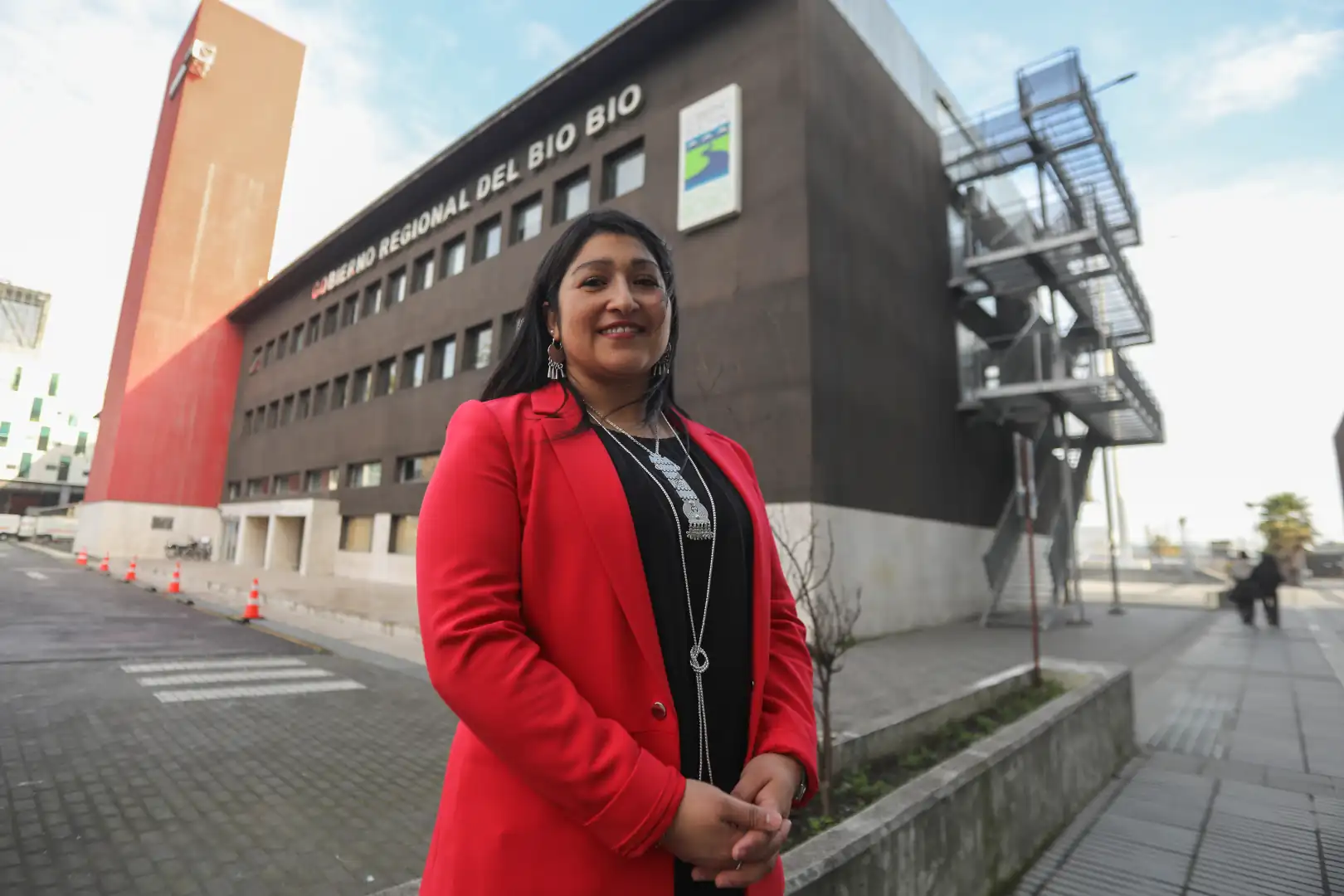Gloria Callupe Rain, one of the eight members of the Presidential Commission for Peace and Understanding, shares her perspective on the work of this initiative convened by President Gabriel Boric.
"I deeply believe in dialogue and trust in the historical vocation of the Mapuche people. We signed nearly 30 treaties with the Spanish crown, as well as with the Chilean state, which was the one that failed to uphold its part. Above all, I believe in the history of the Mapuche people—dialogue is the path to understanding each other and achieving great agreements."
This is the perspective of Gloria Callupe Rain, one of the eight members of the Presidential Commission for Peace and Understanding, an initiative aimed at laying the foundations for a medium- and long-term solution regarding land and reparations, thereby contributing to better coexistence among the inhabitants of the Biobío, La Araucanía, Los Ríos, and Los Lagos regions.
Gloria is an independent Mapuche professional and currently heads the Indigenous Peoples Unit of the Biobío Regional Government, where she promoted the creation of the "Biobío Reconoce" plan and the implementation of a regional model for intercultural dialogues. This led her to coordinate a regional mission to New Zealand in May 2023 to study the Māori experience in depth.
Connected to the social world
A Social Worker from Santo Tomás University, with diplomas in Intercultural Leadership and Social Security from the same institution, and a master's degree in Local and Regional Human Development from the University of La Frontera, Gloria Callupe is optimistic about the work of this group convened by La Moneda. She states that experience, history, and an urgent look at the present and immediate future position dialogue as a minimum foundation for progress in understanding.
"There is a process in acknowledging that we are experiencing a conflict, that the relationship between pre-existing peoples and the Chilean state has been and remains contentious. The New Zealand case, which I had the opportunity to learn about, is clear in starting from that point to then generate agreements and enforce them. Although in our country, across all democratic governments of the last 30 years, there have been important and legitimate attempts to advance agreements, the state has shown a profound inability to maintain a medium- and long-term vision. The political cycle, party conflicts, and ideological preferences have deprived us of substantive progress and have fueled discord. We are trying to take responsibility for this recent history to act differently."
In this regard, she notes that by November 2024, the commission must deliver a report to President Gabriel Boric that will provide inputs for a proposal on reparations to victims of the conflict, whether Mapuche or not. "This represents an openness to listening to as many people as possible, as it is a highly participatory and, we hope, decisive initiative."
Regarding the workload and the responsibility assigned to the commission, Gloria Callupe stated that each of the eight members is fully aware that "it is a challenge and a very difficult task, because we are in a scenario of distrust facing a conflict that has dragged on for decades."
"Although Chile is a country that has grown economically over the last 30 years, consolidated institutionally, and maintained its democratic stability, many of these good developments have not reached the Mapuche people, who in rural areas still struggle for sanitation, connectivity, or outright survival."
Intercultural dialogues
Callupe asserts that, despite the difficulties, progress in understanding is possible, citing the intercultural dialogues promoted by the Biobío Regional Government as an example. "In partnership with the University of Bío-Bío, we began working on the Biobío Intercultural Dialogues program, which seeks to establish a process of conversation cycles among Mapuche society sectors, businesses, the public sector, civil society, the Regional Government, and others, to achieve a common understanding in the medium term."
In this vein, she acknowledges that, fundamentally, this initiative filled a gap in the region, as there had been no such broad and inclusive approach to addressing the conflict.
"We have held dialogues in all three provinces, gathering concerns from ancestral authorities and Mapuche leaders. A participatory council has been formed, creating spaces for knowledge exchange among all stakeholders. For example, the forestry sector has had the opportunity to present its work and its perspective on companies and contractors. We are convinced that this, and no other, is the way forward—to dialogue, understand each other, recognize one another, and together build the future we deserve."







Comments (0)
No comments yet. Be the first to comment!
Leave a comment